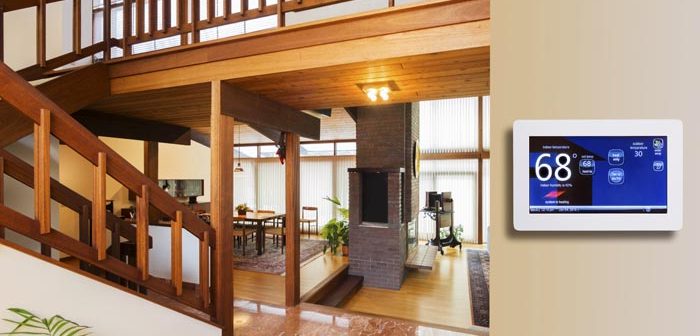If you are in the market for new ways to save energy in your home, you have probably heard of Programmable Thermostats. Programmable thermostats are marketed as saving energy, cutting costs, and increasing ease of use. Are they worth the hype? The following is a breakdown of Programmable Thermostats’ key features and how they live up to these marketing claims.
Automatic Adjustments
With a traditional thermostat, you manually adjust the temperature in your home. You have a couple specific ways that you can adjust what is happening. You can choose to heat or cool your home to a specific temperature. You can also choose to set your fan to run continuously or automatically. As long as your heating and cooling units are properly maintained, a traditional thermostat will help keep your home at the temperature that you set.
Programmable Thermostats differ from traditional thermostats in that you can set them to adjust the temperature automatically based on the time of day. For example, if you feel comfortable at 74 degrees but prefer to sleep at 70, you can set the thermostat to cool to 70 starting an hour before your bedtime. Of course, you can manually set a traditional thermostat to your preferred sleeping temperature before bedtime as well. Still, Programmable Thermostats come in handy for elderly and differently abled individuals who may have difficulty accessing the thermostat to use it manually. If you are forgetful or have struggled in the past with consistently setting at home versus away temperatures, Programmable Thermostats can help make sure that your forgetfulness isn’t costing you. If you plan to keep your home at a constant temperature or are in the habit of setting at home and away temperatures daily, a Programmable Thermostat probably isn’t worth the hype for you.
Do Programmable Thermostats Cut Costs?
You can also preset the temperature to change when you are not home. Many users of Programmable Thermostats tout their ability to turn the air off or to run it at a lower capacity when they are at work and then adjust it to their ideal temperature before arriving home. This can be used to allegedly cut cooling costs in the summer and heating costs in the winter.
In 2004, the Environmental Protection Agency released a statement claiming that Programmable Thermostats would save users between 10% and 30% of their heating and cooling costs. However, actual results yielded more modest savings. Field studies showed that most users saved between six percent and seven percent on annual natural gas consumption. A second study conducted in 2008 found that while Programmable Thermostats saved energy while users were away from home, users were actually using more cooling energy than those with manual thermostats.
Ultimately, whether Programmable Thermostats will save your home energy and money boils down to who is in control of the thermostat. Adhering to strict, specific guidelines can significantly cut costs and energy consumption. If your family can choose set points for the temperature and keep them there while you are at home, you will save money. For best results, it is recommended to keep the heater at 68 degrees in the winter and to keep the temperature cooler when you are away or asleep. You can also take advantage of vacation settings. 78 degrees is recommended for the summer.
A secondary feature of some Programmable Thermostats, specifically expense tracking, can help cut costs. Some Programmable Thermostats will show you your home’s energy consumption in real time so you can see exactly what you are saving. If instant feedback or results are appealing to you, this feature can make a major difference. This feature enables you to see how much each adjustment will affect your energy bill to your benefit or detriment. Therefore, this feature can reduce the likelihood that you or a family member would act on an impulse to rapidly heat or cool your home. It also saves you from having to wait until the end of the month to find out if your temperature adjustments will significantly affect your utility bill.










